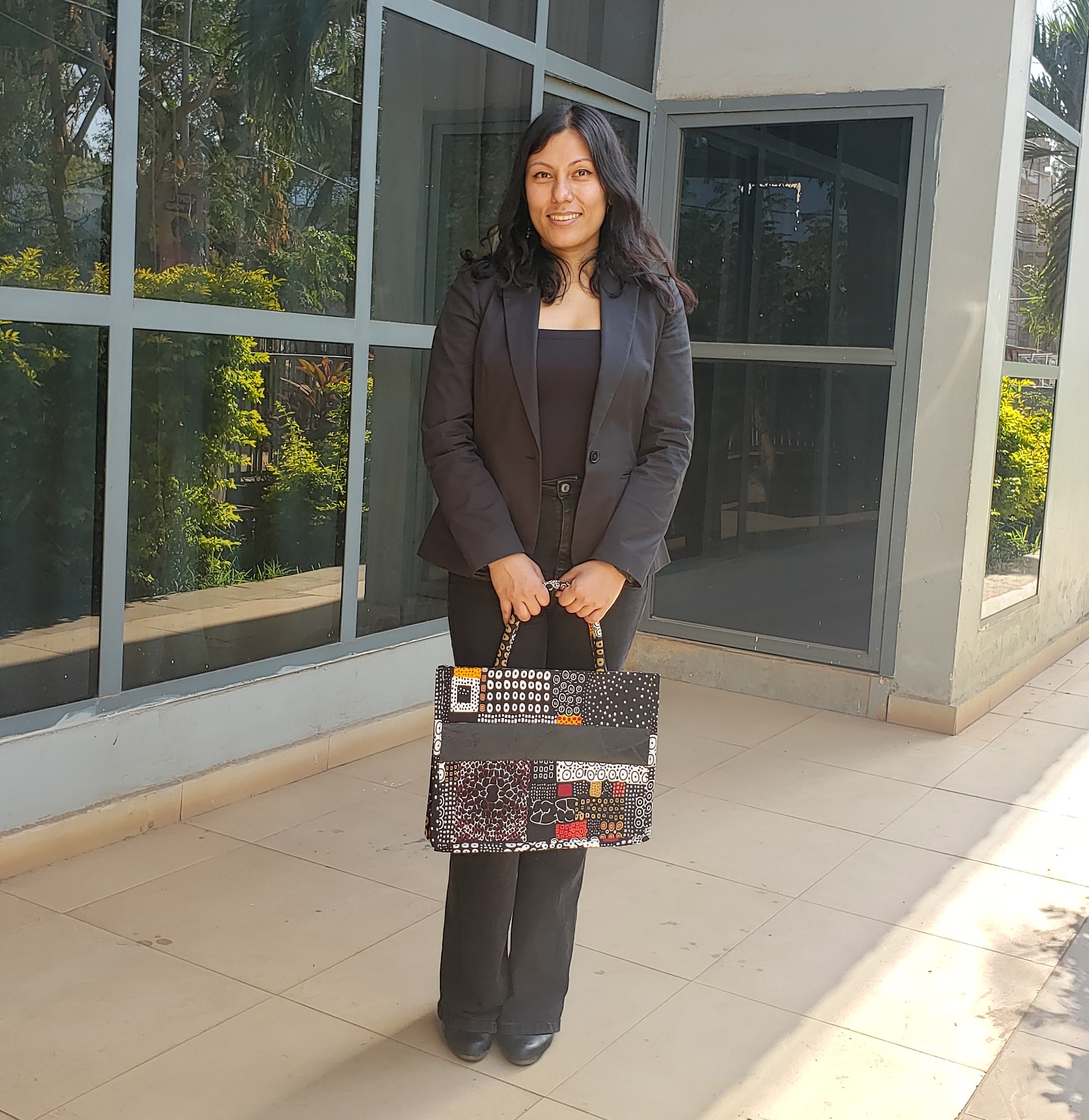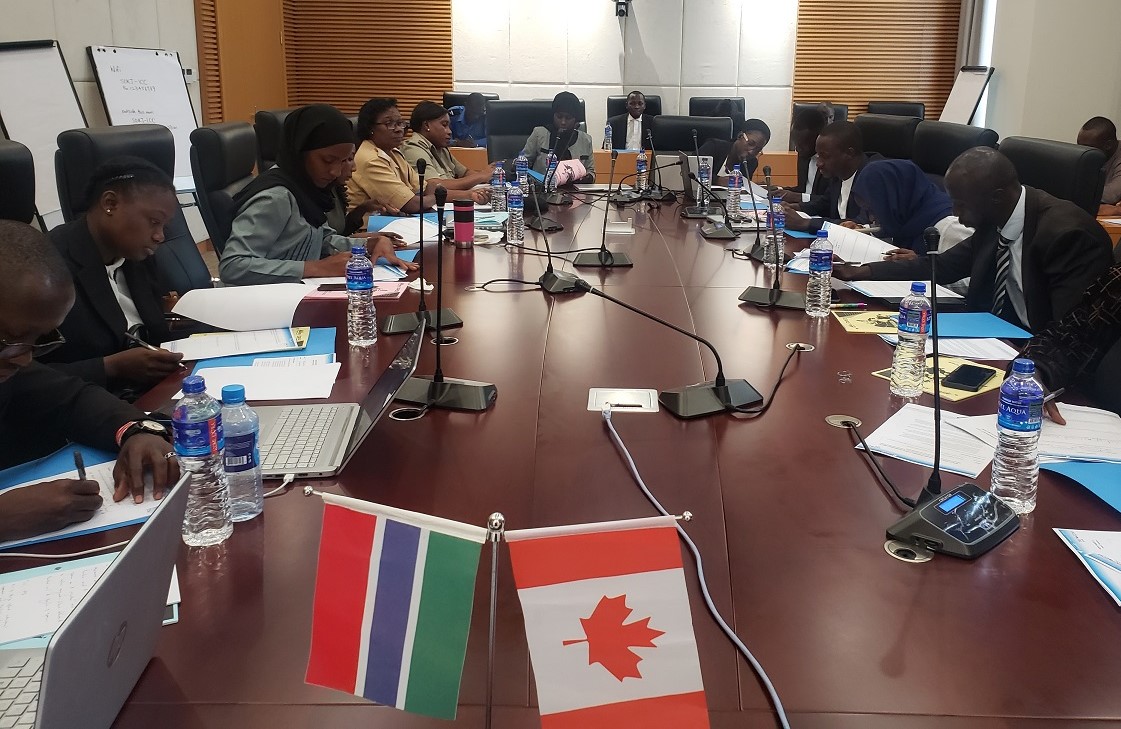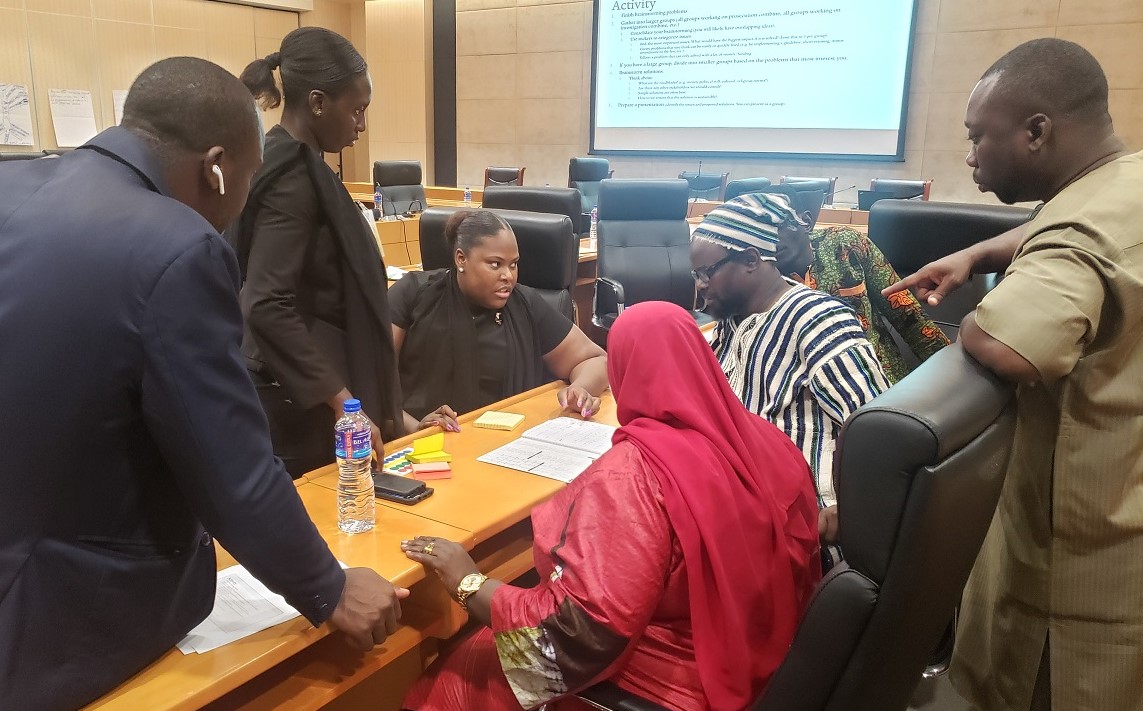Lawyer takes her victims’ rights expertise global

Anju Fujioka works as a lawyer and victims’ advocate in London, Ontario, bringing together members of law enforcement, the justice system and community organizations to support survivors of sexual and gender-based violence.
When Fujioka recently took part in a Technical Assistance Partnership-Expert Deployment Mechanism (TAP-EDM) initiative, she took her expertise global. She’s been working with the Ministry of Justice of The Gambia in Western Africa to improve its capacity to respond to cases of sexual and gender-based violence.

Photo Credit: Courtesy of Anju Fujioka
Fujioka, 30, was born in Norway and had a “nomadic” early life, moving to Japan, India and Oman before settling in Canada with her family. She became involved in advocating for survivors of sexual and gender-based violence at a young age, volunteering at sexual-assault centres and on crisis helplines. Today, as a lawyer, she focuses on civil litigation on behalf of victims of sexual assault and abuse.
Fujioka was recruited to take part in 抖淫视频’s TAP program after The Gambia’s Ministry of Justice requested the assistance of a Canadian expert. It was looking to increase its capacity to investigate and prosecute crimes of sexual and gender-based violence. She worked closely with the ministry’s sexual and gender-based violence unit, which documents and prosecutes cases involving assault, rape and other forms of sexual abuse and exploitation, particularly of women and children.
The country’s transition from dictatorship to democracy has brought a focus on the issue of sexual and gender-based violence, Fujioka says, both in the context of a truth and reconciliation process and in its criminal justice system. The Ministry of Justice is looking to enhance the skills of police investigators and prosecutors, while improving the way in which complainants experience the legal system.
“There is a need to put the victim at the centre,” she says.
Bringing together key groups
Fujioka worked alongside a senior legal adviser from the Ministry of Justice of Ontario and was supported by a team of international development professionals from Alinea International, the TAP-EDM executing agency. She brought together key groups in The Gambia to discuss ways to improve existing processes and support victims and witnesses in such cases.
She points out that while it can be beneficial for a jurisdiction such as Canada to share best practices, The Gambia lacks many of the basic resources we have. For example, it has no in-country DNA testing facility, no way to preserve and track evidence and no digital case-management system. There are also often no vehicles available for police officers to get to crime scenes. “A lot of times they hitch rides with the victim’s family,” Fujioka says. “You’re working in a very different world. So, if you just bring in best practices in a blind way, it’s quite useless.”
One important element of being a TAP-EDM expert in a country is “working within the constraints they have,” she says, discussing what’s feasible while taking into account hurdles, especially limited funding and resources. “Can there be some granular improvements that you can make to processes or to how they’re doing things that will have an impact?”

Photo Credit: Courtesy of Anju Fujioka
On 2 trips to The Gambia, Fujioka organized training-consultation workshops with “a broad swath of stakeholders who don’t typically communicate with each other.” These included prosecutors, criminal defence lawyers, police officers, social workers, staff of the human-trafficking unit and judges.
“The creativity, the passion and just the experience and expertise of the folks around the table came out,” she recalls. “It’s about having the conversation, getting on the same page and sometimes even finding really quick solutions to big issues.”
These “lightbulb moments” were accompanied by “collaboration during lunchtimes and breaktimes between the social workers and prosecutors about ongoing cases and how they could actually work together to better support the complainants.”
Fujioka says the goal was not to develop a national action plan that might languish on a shelf but to examine “how can we improve things in a way that directly affects survivors.” There was also sensitization work focused on attitudes, gender stereotypes and beliefs about sexual and gender-based violence.
“More of a facilitator”
Fujioka did not present herself as “the Canadian expert” but “more of a facilitator,” she says, drawing out conversations and ideas while adding best practices and lessons from other jurisdictions.

Photo Credit: Courtesy of Anju Fujioka
“I didn’t feel like I was telling them, ‘This is how we do things in Canada and this is how you should do it,’” she explains. “We have expertise in this country, we can share that expertise with others, but we don’t have all the answers.”
Being able to visit such a country in person is “huge,” she says, especially with limited internet there. “It's not as easy to just jump onto a Google Meets or Teams or Zoom and just say, ‘Hey, can we talk?’”
She feels grateful that her role in the TAP-EDM initiative could “contribute to survivors having a better experience as they go through the legal system in The Gambia.” Adds Fujioka: “I hope that I’m part of some change there.”
- Date modified: